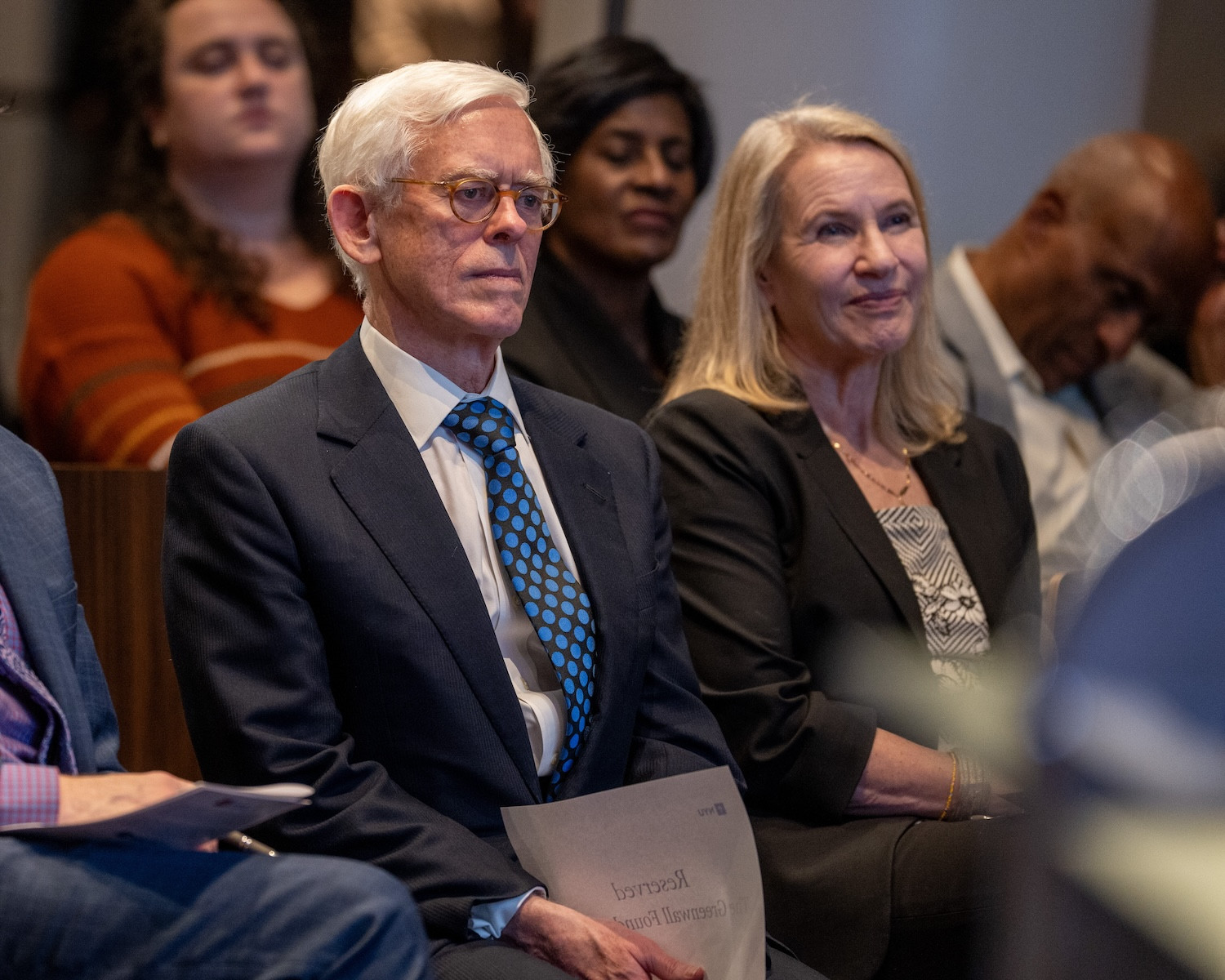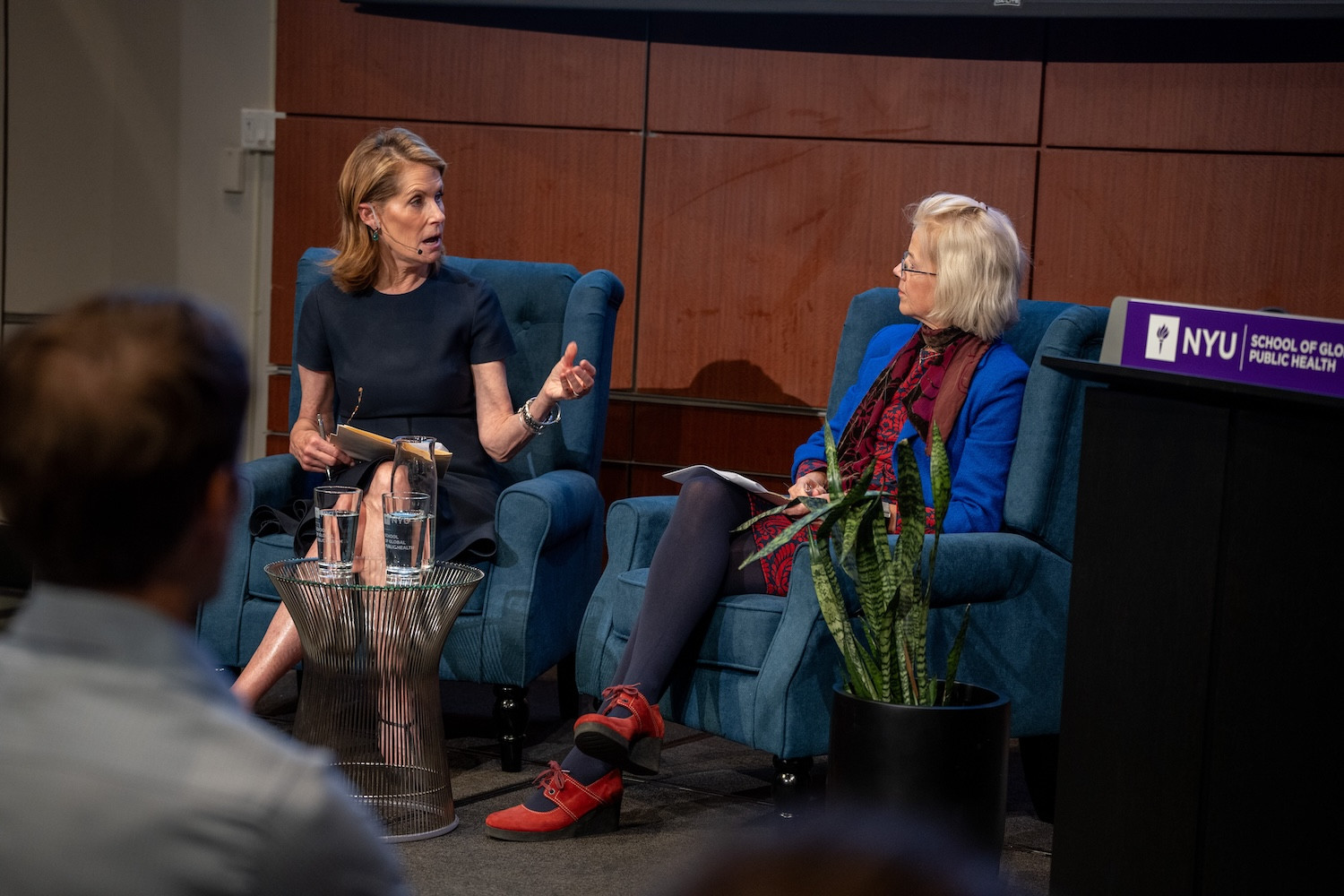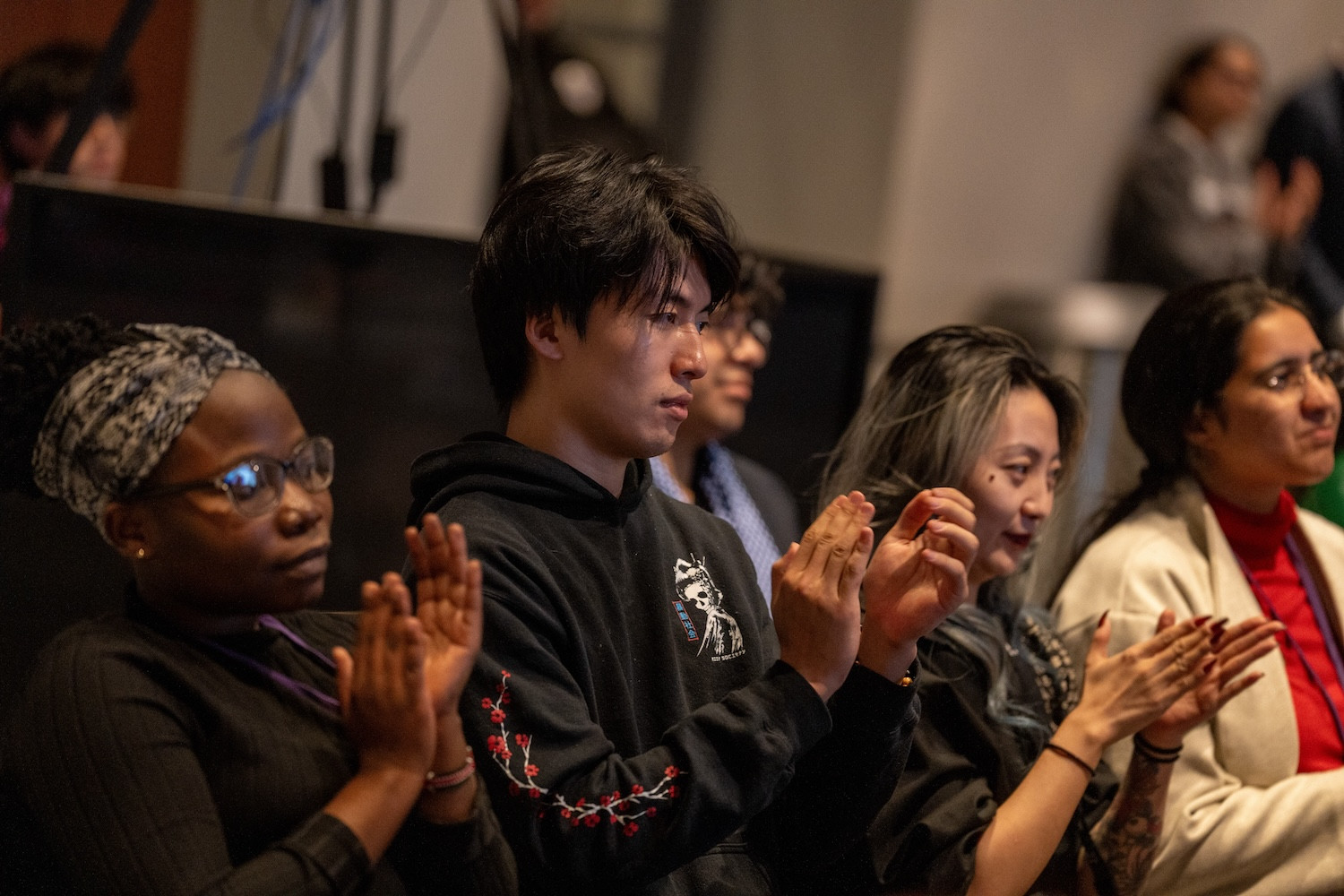Understanding and navigating the U.S. opioid epidemic and related ethical issues was the topic of this year’s William C. Stubing Memorial Lecture, presented November 19 by The Greenwall Foundation at New York University (NYU). The event, in partnership with the NYU School of Global Public Health and its Center for Bioethics, featured an insightful conversation between Beth Macy, bestselling author of Dopesick and Raising Lazarus: Hope, Justice, and the Future of America’s Overdose Crisis, and Perri Peltz, a journalist and Emmy Award-winning documentarian. The Lecture centered on Ms. Macy’s experience reporting on America’s opioid epidemic and the lives of those affected by it.
Navigating Solutions and Hope in America’s Opioid Crisis: The 2024 William C. Stubing Memorial Lecture
In 2012, Ms. Macy, then a reporter for The Roanoke Times in Virginia, was assigned to chronicle the stories of two families in the wealthy suburb of Hidden Valley, both with sons who had become addicted to opioids. One of those young men taught Ms. Macy the meaning of the word “dopesick” — “that excruciating feeling of being in withdrawal” that an addicted person would do anything to avoid.
Ms. Macy wound up writing a three-part newspaper series that shocked readers with the revelation that “wealthy white kids” were becoming addicted to heroin. Users typically started with legally prescribed painkillers like oxycontin and became addicted; when the oxycontin stopped working or became too difficult to obtain, they moved on to heroin; and when that stopped working, they turned to fentanyl.
Recognizing that the crisis was only getting worse, Ms. Macy decided to write a book.
“I basically started to piece together a story [through which] I thought the average reader could learn about how this epidemic shapeshifted,” she said. That book, Dopesick, came out in 2018; it later was adapted for a Hulu limited series.
Ms. Macy said that, despite a 14 percent drop in overdose deaths during 2023 — to nearly 100,000 — the opioid epidemic is “still festering and growing.” She noted that many overdoses go unreported and estimated that roughly 2 million Americans have opioid use disorder (OUD). Only 13 percent of those people have been able to get evidence-based care, she said, adding that the reduction in overdose deaths is largely due to the widespread availability of narcan, which reverses opioid overdoses.

One tension central to OUD treatment is how opioid addiction is viewed: as a chronic, manageable medical condition like diabetes or heart disease or as a personal failing that carries a serious stigma. Ms. Macy understands opioid addiction as a chronic condition and stigma as a challenge we must work to alleviate. In her view, the solution requires a stronger emphasis on harm reduction and medication-assisted treatment (MAT), both of which are controversial among people who believe that complete abstinence is the only acceptable approach to addiction. MAT, Ms. Macy said, reduces an addicted person’s risk of dying by 50 percent to 60 percent, while abstinence reduces that risk by only 8 percent to 10 percent.
“There’s this idea going back to 12-step programs that … abstinence should be the only goal, and if you take a medicine, you’re just treating a drug problem with another drug,” she said.
But evidence shows that MAT works for OUD. “You wouldn’t tell a diabetic that they can’t take insulin, because that’s the evidence-based practice for diabetes,” Ms. Macy noted. “So why would you tell a person with OUD that they can’t have buprenorphine or methadone?”

Raising Lazarus, the follow-up book to Dopesick, focuses on harm reduction, an approach that Ms. Macy first encountered in rural Mayberry County, N.C., through a needle exchange run by a local couple. Over time, the couple have become advocates for people with OUD.
But harm reduction is more than needle-sharing, Ms. Macy said. “The idea of harm reduction is going to people where they are, even if they’re in a homeless encampment, even if they’re living on the streets, and going to them not like ‘we’ve got to get you better; you’ve got to stop using drugs,’ but ‘we’re going to literally meet you where you are, even if you’re still using. We’re going to treat you like a human being.’”
“So, Raising Lazarus begins next to a McDonald’s dumpster in a distressed community in rural North Carolina … with a nurse practitioner who worked for a harm reduction group, meeting a person in active use, and the guy shows up late. He’s high. It’s the height of COVID and he has a broken face mask dangling from one ear.”
The man was crying. “If I don’t stop shooting up, I’m going to die,” he said.
Tim, the nurse practitioner, responded by phoning in a discount prescription for buprenorphine at a nearby Walgreens. He told the man two things: first, that he could get better, and second, to meet with him again in a week, wherever he was.
Ms. Macy said she has met people who have worked with Tim “who have gone from living in a tent to losing their children to having to borrow a car to get to a clinic, and now they are working as peer support specialists. They’re not just better — they’re helping. And that’s so moving to me. But it all starts with harm reduction.”
Despite the challenges, Ms. Macy sees cause for hope. She told the story of an emergency room doctor who at first was skeptical of MAT and pessimistic that anything could be done to solve the opioid crisis. After reading Dopesick, he opened an outpatient buprenorphine clinic with peer counselors.
As Ms. Macy described it, this doctor went from being completely pessimistic to becoming optimistic “because he’s not seeing the same people cycling in and out, and he is seeing that the secret to the care of the patient, as [Dr. John Peabody] said in 1926, is to care for the patient.”

About the William C. Stubing Memorial Lecture
William C. Stubing served as President of The Greenwall Foundation for 21 years. In 2016, the Foundation established the William C. Stubing Memorial Lecture in honor of its beloved former President, who guided the Foundation to its current focus on bioethics. Previous Lectures have covered timely topics in bioethics: climate change and mental health, automation and inequity in healthcare, the public health and ethical challenges of COVID-19, the social inequities revealed by the pandemic, physician aid-in-dying, drug pricing, and genome editing.
Photography: ©Myaskovsky, Courtesy of NYU Photo Bureau